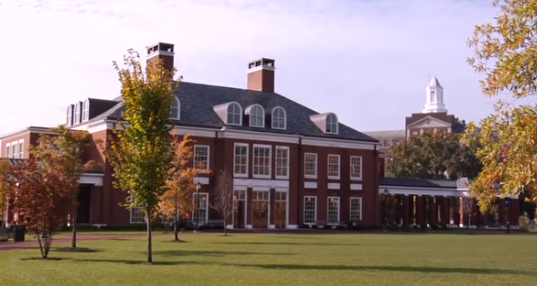Professor blasts employer for namesake’s slavery ties

A Johns Hopkins University professor criticized her employer for its founder’s ties to slavery in the 19th century. The Baltimore, Md.-based university recently discovered that— contrary to previous claims that its namesake was a Union, anti-slavery sympathizer— that he owned slaves.
History professor Martha Jones, who also works as the director of the Hard Histories at Hopkins Project, wrote a scathing opinion editorial about university founder Johns Hopkins’ ties to slavery in the left-wing newspaper Washington Post. Her editorial reeked of “cancel culture,” or the practice of trying to “cancel” or withdraw public support for someone after said person has allegedly done something offensive. Declaring a war on slavery and slaveowners posthumously is far from heroic, contrary to the Left’s line of thinking.
The university’s namesake, Johns Hopkins, was a prominent Maryland planter, who lived from 1795 to 1873 and earned most of his wealth from real estate, railroads, banking, and slavery transactions.
Jones called 2020 a “year of racial reckoning” and asserted that the news about Hopkins’ slavery rocked their psyche. She claimed the recent discovery impacted the community and called it a “shattered myth of our university founder, long admired as a Quaker and abolitionist, rattles our school community as well.” She pointed to the 1850 Census, in which Hopkins listed four male slaves as a part of his property. He also used black slaves as collateral when he received a loan, Jones added.
Although she acknowledged that slavery in America’s colonial era was commonplace, or as she put it, “a tragically ordinary facet of early American life,” she continued to rant about how Johns Hopkins’ name is now forever tainted. “It turns out that Hopkins engaged in all of these endeavors,” Jones wrote, “He enslaved people who likely tended to his comforts at home, without compensation or recourse.” Yet, she admitted that slavery was “all too common in Maryland before the Civil War.”
The discovery rattled her psyche to the point that she felt obligated to tell the audience that she took off her Johns Hopkins sweater to demonstrate her commitment to erasing history. “One arm sticking out of the right sleeve, I stopped and slid the thing back off,” Jones said, “It was a small gesture of reckoning but a sincere one.” She said she used to take pride in her employer, but it “now mixes with bitterness” because the university “was the gift of a man who traded in the liberty and dignity of other men and women.” Jones apparently took pride in Johns Hopkins because he was not like the founders of other universities who had ties to slavery. In concluding her editorial, Jones tried to appear as a bold activist and wrote, “It is time to retire my sweatshirt, however comfortable it was.” “Only with that,” she penned, “can our reckoning begin.”
As Jones admitted, Maryland was a slave-holding colony and later a slave-holding state until the outlawing of slavery in 1865. Also, during the Civil War, President Abraham Lincoln suspended Maryland citizens’ rights in a move called the suspension of the writ of habeas corpus and assigned military officials to govern the state. The state sympathized with the pro-slavery Confederacy at the time and Lincoln’s move protected the nation’s capital, which is located within Maryland. Additionally, the state’s economy relied heavily on tobacco plantations, which used slave labor.
Jones also asserted that before the U.S. Civil War, “Americans held more wealth in enslaved people than they did in railroads, banks and factories combined.” She should have pointed out that most slaveholders were south of the Mason-Dixon Line, which includes Maryland, but she failed to do so. Jones also should have included one of the main reasons why the Confederacy lost the Civil War, which was due to the anti-slavery North’s industrial economy that outpaced the Confederacy’s agricultural economy driven by slave labor.
It is not to validate the practice of slavery, but to provide enough accurate information to help Americans understand slavery in the context of the pre-Civil War era. It was a common practice in Maryland to own slaves before the Union’s victory in the Civil War, which meant that Johns Hopkins was not the only slaveholder in the state.
Jones’s editorial exposed her glaring lack of historical context and knowledge. It is not a historian’s job to judge the past by today’s standards, which is par for the course for modern, left-wing historians. Revisionist and left-wing history are the flawed foundation of Marxist, radical storytelling about American history, which has contributed to the activist-driven cancel culture gripping the country.
This is not the first nor last time that the Left will try to erase history. Activists are clamoring for name changes at Harvard University, Yale University, Clemson University, and multiple other institutions to change residence hall names or names of colleges. It is a worrisome trend that does not appear to have an end, and it also begs the question of whether it is worthwhile to invest time and energy in renaming buildings and programs.
If the Left was truly concerned about the minority community, it should look to establish permanent funding for historical black colleges and universities (HBCU’s) or pass policies that will help lift up the black American community from widespread poverty and family instability.




